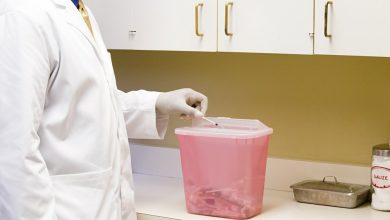Guide To Vitamin Supplements For Women

As a woman, ensuring you’re getting the right vitamins and minerals in your diet is important. However, getting all the nutrients, you need from food alone can be tough. That’s where vitamin supplements come in. There are various supplements designed specifically for women, each with its benefits.
Here is your guide to vitamin supplements for women. We will also list certain vital vitamins and explain why they’re so important for women in particular.
Table of Contents
Why Are Vitamin Supplements Important?
Women have unique nutritional needs, and sometimes it can be challenging to meet all of those needs through diet alone. This is where vitamin supplements come in. Sometimes referred to as “micronutrients,” vitamins and minerals help with many bodily functions, including immune system support, bone health, and more.
For women, certain supplements can have even more significant benefits. For example, folic acid helps prevent congenital disabilities in pregnant women, and B vitamins can help combat the symptoms of premenstrual syndrome. Of course, supplements should never replace a balanced diet and lifestyle – but they can fill in any gaps and help support overall health for women at all stages.
Essential Vitamins For Women
Women Need More Vitamin D Than Men
Women require more Vitamin D than men. This is because estrogen and other hormones affect how the body absorbs and uses this critical nutrient. Women also lose small amounts of Vitamin D through menstruation and pregnancy. To ensure adequate levels of Vitamin D, women may need to take a daily supplement or incorporate certain foods into their diets, such as fatty fish, egg yolks, and fortified milk or cereal.
Women Need More Iron Than Men
During menstruation and pregnancy, women lose a significant amount of iron. If the body doesn’t have enough iron, it can lead to symptoms such as fatigue, shortness of breath, and a weakened immune system. Women can get their daily dose of iron through foods such as red meat, seafood, leafy greens, beans, and fortified cereals.
However, some women may still not get enough iron from their diet and may need additional supplementation. Likewise, blood tests can determine if a person has low iron levels and may benefit from iron supplements.
Women Need More Folic Acid Than Men
Women require higher levels of folic acid in their diets than men, particularly during certain life stages. Folic acid is crucial for producing and maintaining new cells, making it important for prenatal development and preventing congenital disabilities. Pregnant women or trying to conceive have an increased need for folic acid to support the growth and development of the fetus.
Additionally, women experience significant cell turnover throughout their lives due to menstruation and menopause, requiring a constant supply of folic acid to replenish their cells. While men do not go through these same processes, they still benefit from the cell-building effects of folic acid and should include it in their diets. However, women should be especially vigilant about getting enough folic acid in their daily meals.
Women Need More Calcium Than Men
As women age, their bone density naturally decreases, leading to osteoporosis, a condition in which the bones become fragile. One way to combat this is through calcium supplementation. Women typically require higher calcium levels than men, which helps maintain strong bones and prevent bone loss.
Both women and men need to consume enough calcium in their diet, but women may significantly benefit from taking an extra supplement. Consult your doctor to determine if added calcium is proper for you and what dosage would most effectively maintain bone health. Don’t let decreasing bone density put you at risk – take steps to keep your bones strong and healthy as you age.
Women Need More Magnesium Than Men
Have you ever heard that women need calcium for strong bones? While it’s true that calcium is crucial for bone health, it turns out that magnesium is just as essential. In fact, women may require higher levels of magnesium than men. This mineral is crucial in regulating hormones, muscle function, and metabolism.
Unfortunately, many women don’t get enough from their diets alone. That’s why women must consider adding a magnesium supplement to their daily routine. Not sure how much to take? Talk to your doctor and don’t let a deficiency in this essential mineral hold you back from feeling your best – make sure you’re getting enough magnesium every day.
Conclusion
Now that you know more about the best vitamins for women, it’s time to start shopping. First, look for supplements that offer all the nutrients discussed in this guide. Be sure to consult your doctor before changing your supplement routine. And finally, don’t forget to stock up on parasite cleansing kits – just in case!






